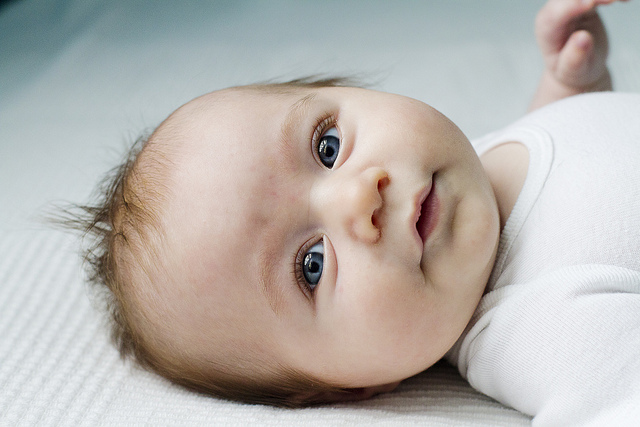
The concept of three-parent babies soon will be a reality as the British government on Tuesday finally gave its nod to make the process legal across the country.
The new technique is expected to prevent severe genetic defects like mitochondrial diseases in children by allowing couple at risk to accept egg from a donor woman.
The new procedure based on IVF will use father's sperm and eggs from the mother and another woman who has healthy mitochondria, BBC reported. The process involves creating two separate embryos by fertilising the sperm with eggs collected from the two women.
The nucleus that carries genetic information is removed from the parents' embryo and placed in the donor embryo. Before the final process, nucleus in donor embryo will be removed and destroyed.
Mitochondria are those parts of the cells that are responsible for converting sugar and oxygen into energy required for proper functioning of the cells. Mitochondrial diseases occur when mutations in the mitochondrial DNA lead to a scarcity of energy in cells.
It can affect each part of the body. Some of the symptoms include developmental delays, autism spectrum disorder, learning disabilities, poor growth, muscle weakness, problems with sight and hearing, memory loss and seizures.
A child receives mitochondrial DNA from its mother. So women with mutations the DNA are at greater risk of passing them on to their offspring. Inheriting this mutated DNA can increase the risk of several health issues including blindness, heart failure and liver failure in infants.
As there is no cure for this condition, many women often decide to remain childless. Living with the condition can be painful for both the child and the parents.
"Mitochondrial disease has ruined our lives," Ruth Safak (54), referring about her 20-year-old son told Newcastle University. Deniz was diagnosed with mitochondrial disease at age eight and has been confined to wheel-chair and gets regular seizures and migraines since then.
"My son is much worse than me, he vomits, he has seizures and migraines, he can't walk, he's only 21," Safak, who hails from Sunderland in England, said. "I didn't know until Deniz was eight that he was affected by it and I was a carrier. He can't do anything for himself, he needs round-the-clock care and suffers terribly."
"If I could have avoided this, what a marvellous life we would have had. I think the research into this technique is fantastic and nothing should stand in its way," she added.
The new regulation will come into effect within the next few months and the first three-parent baby can be expected next year. However, the experts are still uncertain about the safety of the procedure.
"Are these techniques safe in humans? We won't know that until it's actually done in humans," Prof Andy Greenfield, who chaired a scientific panel analysing the new procedure, told BBC in June. "Until a healthy baby is born we cannot say 100% that these techniques are safe, if you think back to when IVF was a new technology all of these questions were asked before IVF."
















